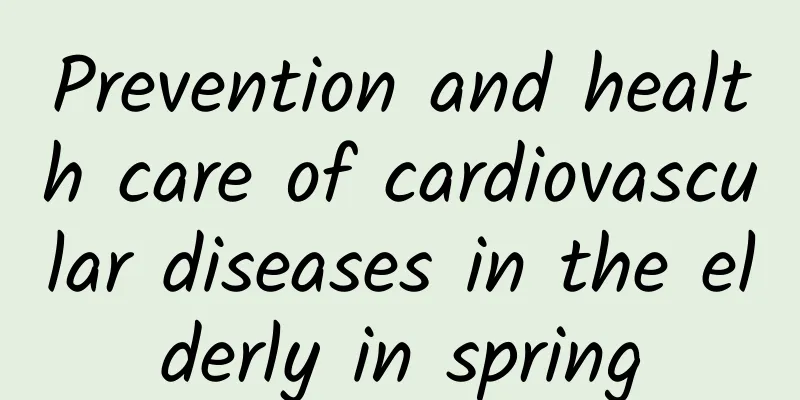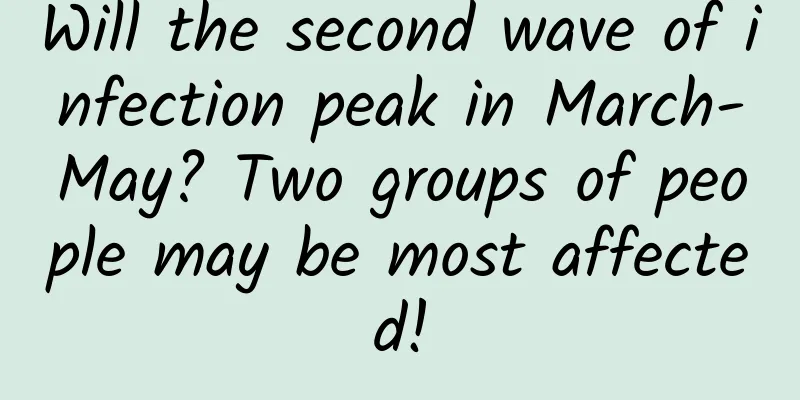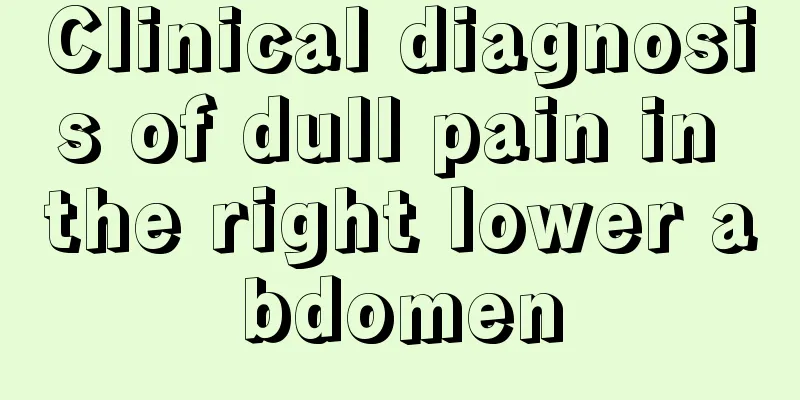What does it mean if you have menstruation after breastfeeding for a full month?

|
There are many folk sayings that have been passed down to modern society. Although they have no scientific basis, they are still believed by many people. Among them, if a woman has her period during breastfeeding, many older people say that this will cause the breast milk to lack nutrition and will not be enough to meet the baby's nutritional needs. However, it is a very normal physiological phenomenon for women to have menstruation after giving birth, so many women will consider whether menstruation during breastfeeding will have any impact on the body? Myth 1: Menstruation during breastfeeding means breast milk has no nutrition. Is this true or false? It is generally believed that breast milk lacks nutritional value after a woman has her menstrual period, but this is not scientific. The quality of breast milk will not deteriorate after menstruation, but because of menstruation, women's endocrine levels will change to a certain extent, so the composition of breast milk will change. Generally speaking, after menstruation, the protein content will be slightly higher and the fat content will be relatively lower. In addition, it may be more concentrated sometimes, so some women may experience less milk secretion after their period. Therefore, mothers can add more foods that help promote milk secretion according to actual conditions, drink more soups and water, and then give the baby the best nutrition with a positive attitude. Myth 2: Menstruation during breastfeeding? Did women not get enough rest after giving birth? In fact, this statement is also unscientific. Whether a breastfeeding woman has menstruation depends on her own physical condition, hormone levels and other factors. Of course, women's ovulation time and menstrual recovery time will be affected by breastfeeding. Some women may not have their menstruation until they are weaned due to breastfeeding, while women who do not breastfeed will usually have their menstruation within four months after giving birth. However, whether or not a woman has menstruation during breastfeeding is not a criterion for judging whether her body has recovered after childbirth. Some women have menstruation during breastfeeding, while some women do not have menstruation during the entire breastfeeding period. The specific time of menstruation should be determined according to each person's physical condition. It is worth mentioning that many women tend to confuse postpartum lochia with menstruation. Generally speaking, if lochia still exists within 42 days after delivery, it is recommended to go to a gynecological hospital to check whether the uterus is not fully recovered or there are other problems. Myth 3: Menstruation during breastfeeding? Must weaning be done? Some people believe that if you have your period during breastfeeding, breast milk will have no nutrition and will be toxic. In fact, these statements are unscientific. First of all, the reason why many people think that menstruation during lactation and breast milk are poisonous is because the composition of breast milk has changed. The breast milk is more concentrated and contains relatively more protein. Therefore, if you do not pay attention to feeding, it is very likely that the baby will have short-term diarrhea. In fact, these can be automatically recovered after a short period of conditioning. It is nonsense to say that breast milk is poisonous. Not only is breast milk non-toxic, it is also very beneficial to the baby's growth. As for whether or not to wean the child, it depends on the specific situation. For example, the age of the baby. It is generally recommended to breastfeed for at least 10 months; the physical condition of the pregnant woman, whether it is really necessary to wean the child, etc. Of course, if the breast milk becomes concentrated after menstruation, or the baby grows older and eats more, and the breast milk can no longer meet the baby's growth needs, you can consider adding complementary foods or weaning the baby. Finally, I would like to remind you that whether you decide to wean your child or not, you should find the best time and wean your child gradually. |
<<: What happened if I don’t have any vaginal discharge after giving birth?
>>: Can I get pregnant while breastfeeding?
Recommend
Treatment of low-grade cervical intraepithelial neoplasia
I believe some female friends know the importance...
What is the treatment for postpartum hemorrhage?
Postpartum hemorrhage is very dangerous. If the a...
Health Science | Disinfection Knowledge
Disinfection is to kill or remove pathogenic micr...
How can we delay uterine aging?
Women nowadays think that beauty is the most impo...
What causes jelly-like discharge?
As we all know, women's vaginas will have leu...
Why does a woman's white skin turn darker?
Nowadays, popular boys are tall, rich and handsom...
What is vulvar adhesion?
Vulvar adhesions are a common symptom that occurs...
What is the reason for the thick and uneven echo of the endometrium?
The endometrium is a very important tissue. It ca...
An inch longer is an inch stronger. How can you stretch to be healthier?
There is an old saying that "an inch longer ...
What brand of mobile phone does the heroine of I Want to See You use? The same model and price of Huang Yuxuan's mobile phone
The phone and phone case used by Huang Yuxuan, th...
Which one is less harmful to the body, artificial abortion or medical abortion?
Everyone knows that both surgical abortion and me...
Will I get pregnant if I have sex a week before my period?
Some women will calculate the safe menstrual peri...
Can I drink Kuding tea during breastfeeding?
I believe everyone has some simple understanding ...
White with a little pink
Leucorrhea is a liquid that women secrete every m...
What is the name of wax gourd? The nutritional value of wax gourd
The fruit of wax gourd can be eaten as a vegetabl...









